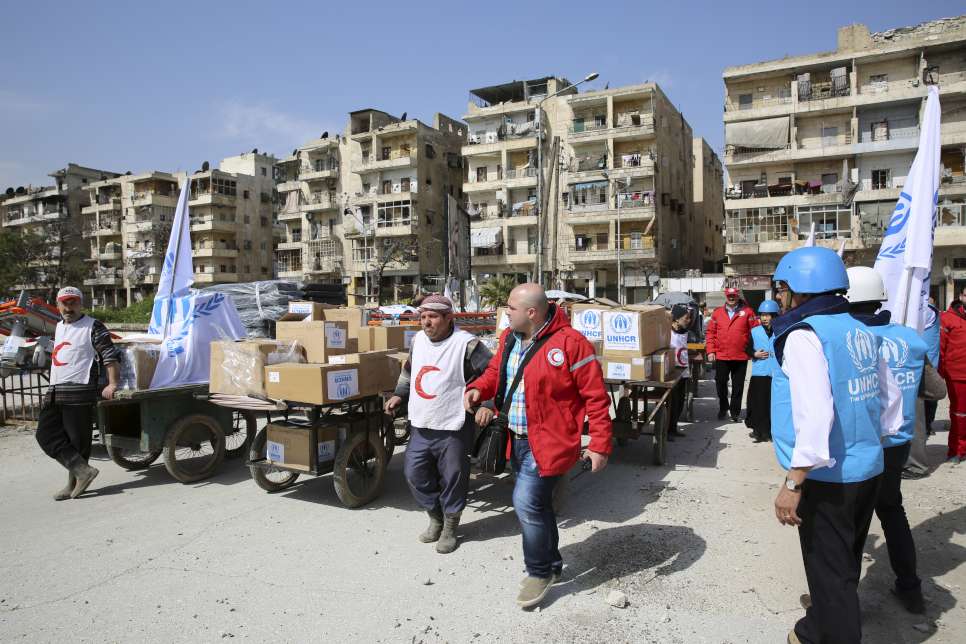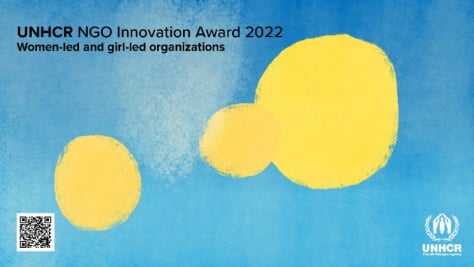UNHCR has been working with NGOs since we first began helping the forcibly displaced in the early 1950s. As our work and size grew to cope with emerging refugee crises in the 1960s, 1970s and 1980s, especially in Africa, Asia and Central America, so did our ties with a wide range of newly formed humanitarian and refugee-related NGOs.
In 2007, UNHCR adopted the Global Humanitarian Platform's Principles of Partnership that set out common standards of equality, transparency, complementarity and a results-oriented approach among all humanitarian groups. We integrated the Principles of Partnership in to our 'Framework for Implementing with Partners' as an institutional approach to collaborative partnerships.
The Global Consultation with NGOs includes a range of national and international NGOs from around the world. It provides an important forum for NGOs and states to network, dialogue and exchange views with UNHCR as equal partners – an approach that NGOs welcome.
"The UNHCR has had the most excellent relations with the voluntary agencies. Their work is in a true sense of the term indispensable and invaluable for refugees”
Dr. Van Heuven Goedhart, The first High Commissioner for Refugees, 1954
Today, we rely heavily on NGOs to implement a wide range of projects, including aid distribution, protection, logistics, shelter, health, water, sanitation, nutrition and education projects.
Recent report: Stocktaking of the implementation of pledges made by civil society at the 2019 Global Refugee Forum
The 'Stocktaking of civil society pledges' report explores the progress made by civil society in realizing pledges made at the 2019 Global Refugee Forum (GRF). It further highlights key lessons to inform activities and discussions leading up to the next GRF in 2023. The report was launched during the High-Level Officials Meeting in December 2019.
When putting the Global Compact on Refugees into action, civil society is at the front line and essential to its success. Civil society forms the largest group among all action takers based on the number of pledging entities. They are instrumental in ensuring meaningful participation of refugees and other marginalized groups. Furthermore, 45 per cent of civil society pledges have demonstrated attention to age, gender and diversity in their implementation. This is significantly higher than the average rate across pledges of 36 per cent. Civil society is also much quicker in implementing pledges compared to other stakeholders. To date, civil society actors have implemented up to 66 per cent of their pledges, compared to the average completion rate of 45 per cent across other pledges. If sufficiently empowered, supported and funded, civil society has the potential to deliver even more – and action taken now can unlock this potential in advance of the 2023 GRF.
The report aims to increase visibility of civil society actors, acknowledge their significant contributions to the Global Compact on Refugees (GCR) and inspire stakeholders to pursue their commitments further.
How to get in touch
Partners interested to collaborate with UNHCR are invited to register in the Partner Portal, an interactive tool established for enhanced communication between UNHCR and our partners.
Further information and useful links
Global Consultations with NGOs
Every year representatives from around the world attend the UNHCR's Global Consultations with NGOs.
UNHCR Partner Portal
To help communcation between UNHCR and partners and achieve the best protection and solutions for people forced to flee. Learn more about the UN Partner Portal.
NGO Innovation Award 2022
The 2022 Award will focus on women-led organizations and girl-led organizations working with or supporting refugees, internally displaced persons, returnees, stateless persons and host communities. Apply or nominate now!
Contact us
If you are interested in exploring a partnership with UNHCR, please contact us at [email protected].




